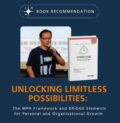Coaches work with clients to think through issues and come up with a strategy to achieve goals.
Manpower Correspondent. Straits Times, Sunday, 29 May, 2022
SINGAPORE – Getting a coach used to be seen as something reserved for athletes or senior executives, but it is increasingly being taken up by regular workers as well.
This comes as people are paying more attention to the importance of individual well-being, work-life harmony and career aspirations amid the labour market upheaval caused by the Covid-19 pandemic.
How do coaches help?
The International Coaching Federation (ICF) defines coaching as partnering with clients in a thought-provoking and creative process that inspires them to maximise their personal and professional potential.
Coaches work with clients to think through issues and come up with a strategy to achieve goals. Coaching is different from mentoring, which is typically long-term and less structured, and from counselling or therapy, which focus more on healing past trauma or emotional distress and require clinical qualifications.
Industry players say more organisations are hiring coaches for their staff in recent years.
Mr Nick Goldberg, chief executive of virtual professional coaching platform Ezra, notes an increase in employees using professional coaching to help with communication around empathy, influence and work-life balance.
Mr Tim MacCartney, senior vice-president for Asia-Pacific at digital coaching platform CoachHub, says the pandemic has pushed people to shift their focus from learning technical skills to developing soft skills that can help them be better leaders, managers or work colleagues.
“Regular coaching provides tangible, actionable reminders to embed learnings into their day-to-day work,” he says.
Individuals can also engage private coaches, use platforms like BestOfMe and BetterUp, or approach organisations that offer career services like Workforce Singapore (WSG) and NTUC’s Employment and Employability Institute (e2i). There are also specialised career services for groups such as people with disabilities and senior citizens.
Costs vary – WSG and e2i provide free career coaching for Singaporeans, while private coaches can charge several hundred dollars per session, though some may offer sessions with lower fees depending on the client’s circumstances.
Mr Alvin Soh, 33, has spent close to US$10,000 (S$13,700) so far on life and career coaching over the last five years. He first picked it up in 2017, after being promoted to chief strategy officer in an overseas business unit of an insurance company when he was just 29. “It was a real stretch for me to manage a team, perform at senior management level and report to the CEO. I was very stressed,” he says.
Mr Alvin Soh started getting life and career coaching after starting a senior management role at a small company in 2017.
A more senior colleague recommended that he ask a chief executive to coach him, and he paid US$2,000 for six sessions.
Through coaching, Mr Soh realised he needed to work on networking. His coaches asked questions that helped him realise assumptions that were holding him back, and evaluate the action plans he made.
“I’ve been consistently spending time to get to know people of different functions in different countries. Now if I want to make certain decisions, I can just text a few people. They know me and trust me so they give me certain information and I can validate things very quickly,” he says.
Now a vice-president in another insurance firm, Mr Soh signed up last year with BestOfMe for six sessions, which gives him the flexibility to meet different coaches each time and get a wider variety of perspectives.
If you are stuck in a rut at work and think a coach might be able to help, here are some tips.
- Find the right coach
Some coaches specialise in a particular area, such as career, executive, leadership or youth. Identify the area you wish to work on, and how you want to find a coach, whether through contacting individual coaches, signing up with a platform, or approaching an organisation.
As the profession is unregulated, check the qualifications of private coaches before engaging them.
The ICF, Association for Coaching and European Mentoring and Coaching Council are some international bodies that provide credentials for coaches.
For example, under the ICF framework, an associate certified coach needs to clock at least 60 hours of training and 100 hours of coaching experience. A master certified coach must have at least 200 hours of training and 2,500 hours of coaching experience. Credentials are valid for three years.
WSG’s Career Development Framework is another competency-based credentialling framework for career coaches here.
Different coaches may use different methods. One example is neuro-linguistic programming, which aims to change someone’s thoughts and behaviours.
Take advantage of the free or discounted preview sessions many coaches offer so you can see if you are comfortable working with them and their methods.
- Set measurable goals
Effective coaching has specific measurable outcomes, notes Ms Usa Skulkerewathana, senior lecturer in the department of management and organisation at the National University of Singapore Business School.
For example, if you want to improve your networking skills, objectives such as specific steps, timeframe and measurable new networks must be established from the start. And success can be measured against the plan, she says.
Dr Sherwin Chia, a senior lecturer who teaches human resource management at the Singapore University of Social Sciences, says if the goal involves something intangible, such as emotions or behaviours, it is important to get a 360-degree feedback with people you can trust to provide you with honest feedback on whether you have changed.
- Invest time and effort
The number of coaching sessions required typically depends on three things – your goals, how much support you need, and how much work you put in between sessions, says BestOfMe chief executive and founder Chiew Ai Chin.
She recommends three to six sessions over one to three months to work on short-term goals, such as navigating the next career path or preparing for interviews.
For longer-term goals, like building leadership qualities, cultivating habit or behaviour changes, six to eight sessions over three to six months are recommended.
Dr Chia also notes that achieving the goal that you have set in collaboration with your coach requires you to be self-directed and put in effort towards goal attainment.
“The coach is only a facilitator,” he says.

